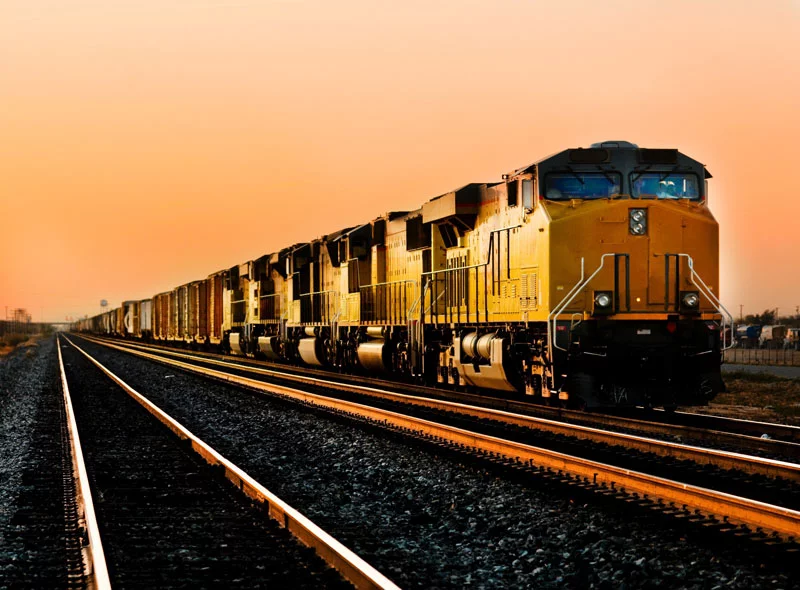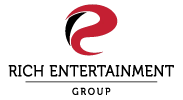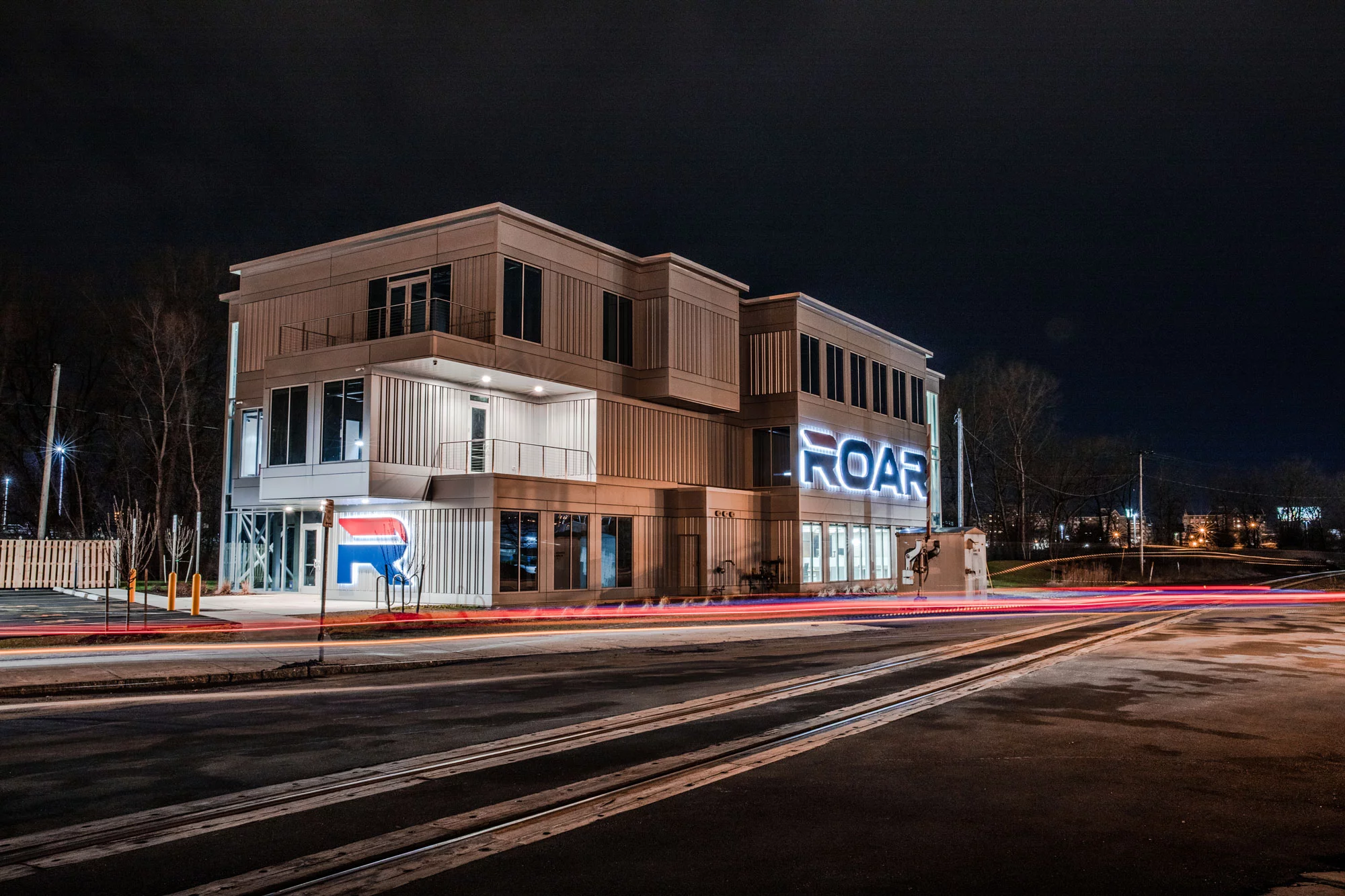Headlines across the transportation industry are dominated by news of trucking companies going out of business in the wake of a major freight recession. This comes on the heels of one of the most significant trucking booms our nation has ever seen, thanks to a surge in demand for goods throughout the pandemic. What’s causing the recession? What does the future look like? And how is REG subsidiary ROAR Logistics weathering the storm? To answer those questions and more, REG sat down with ROAR’s Founder and President Bob Rich III who says his company’s resilience is a testament to strong management, dedicated associates, an agile and diverse business model, and steadfast commitment to their long-term growth strategy.
“I believe that the companies that stay the course and survive the current climate should be ‘boring’ companies,” said Bob. “Boring companies aren’t high flying. They are frugal, they are cautious, they are watching and analyzing. They’re figuring out how this will all play out before making major strategy shifts. These are companies focused on controlling what is controllable. I’d rather be a boring company right now.”
 The State of Freight
The State of Freight
Since the pandemic began to wind down midway through 2022, there has been less freight available across the country and shippers aren’t eager to pay top dollar to get it moved the way that they had to during the pandemic. This has sparked a freight recession and marked the onset of plummeting freight rates. Those factors, coupled with soaring fuel prices, driver shortages, and increasing costs to recruit and compensate drivers, have carriers scrambling to remain profitable and keep their trucks on the road. In the first quarter of 2023 alone, FleetOwner reported that more than 31,000 trucking companies ceased operations.
“We experienced a nearly two-year spike in demand and rates,” reflected Bob. “Our costs didn’t necessarily always rise in every lane as fast as the rate, but demand for the product did and companies saw major growth and, as such, increased profitability.”
The critical question is, Bob suggests, what did transportation companies do with that profit? Did they invest it the right way? Did they plan for an end to the pandemic? Did they anticipate that what went up would quickly go back down? Many companies used Covid cash to fund growth and invest in technology while others invested in their fleet, thinking rates might go even higher.
The ROAR team took a more conversative approach, analyzing the market from all angles, even considering what would happen if rates went lower. Without sufficient data to predict where the market would go, ROAR decided to err on the side of caution, knowing that if things stayed consistent or got better it would be easy to ramp up. However, if it got worse (which it did), it was easier to stay the course. ROAR made the calculated decision to refrain from acquisitions and dramatic strategy changes until they knew what was coming down the pipeline.
Patience and Persistence Pay Off
Bob insists that adherence to a conservative strategy and foresight enabled ROAR to remain strong through industry turmoil. In addition, ROAR’s multiple service offerings – road, ocean, air and rail – gave them the advantage of having a diversified portfolio and the flexibility to respond to market changes.
“If we’re not making money on road freight, we can shift resources and focus on rail or another area of the business that’s proving to be profitable,” commented Bob. “That has been our strategy from the outset, and we have consistently put time and energy into each diverse revenue stream to build relationships that allow us to pivot and remain strong.”
ROAR has also focused on optimizing operations, minimizing costs and maximizing efficiency to promote profitability.
“When you get to the point that you’ve taken all cost out of the system and you are operating at bare bones, that is when your creativity sets in, and your creativity is going to carry you,” remarked Bob. “We constantly ask ourselves what we can do to get a little bit better? We start by making sure that we’re using the best vendors and hiring the best people. Then we work to build relationships, drive the cost out and be fair to everybody, as we realize that we’re all going through this together.”
ROAR’s Future is Focused on People and Growth
Throughout this period of great uncertainty, ROAR has one eye on the marketplace, and one eye on associates.
“Where we did invest was in our people,” said Bob. “No matter where the market was going to go, we wanted to ensure our people were taken care of. We wanted to keep people energized and enthusiastic while we waited to see what would happen with the market.”
Since the industry peak two years ago, ROAR’s revenue has dropped about 18%, however they are still maintaining profitability ahead of where the company was in 2019. Bob credits their success to ROAR’s managers, their associates, the finance team and company strategists who all adhered to the plan: stay the course; don’t go crazy changing things up, don’t panic. In other words, stay boring.
“We went up, and we were very profitable,” reflected Bob. “Then we came back down. But guess what, we’re still doing pretty good.”
Through it all, Bob and ROAR’s leadership team have maintained transparency and committed to open communication. Bob says staying profitable has taken a lot of creativity and a lot of hustle in the face of tremendous adversity.
As the ROAR team embarks on the second half of their 20th anniversary year, the company has the peddle to the medal and a laser focus on their long-term growth plan.
“We’ve never grown by shrinking,” assure Bob. “Nothing in our long-term plan has changed. We continue to interview salespeople. We’ve opened an office in Arizona, and I’ll be moving there soon to help to grow that office. We’re going to continue to grow on the West Coast. We’re going to continue to grow our operations in Western New York. It’s full steam ahead for ROAR Logistics.”
To learn more about ROAR, visit RoarLogistics.com and stay tuned for more industry insights and updates from Bob in upcoming REG posts.


